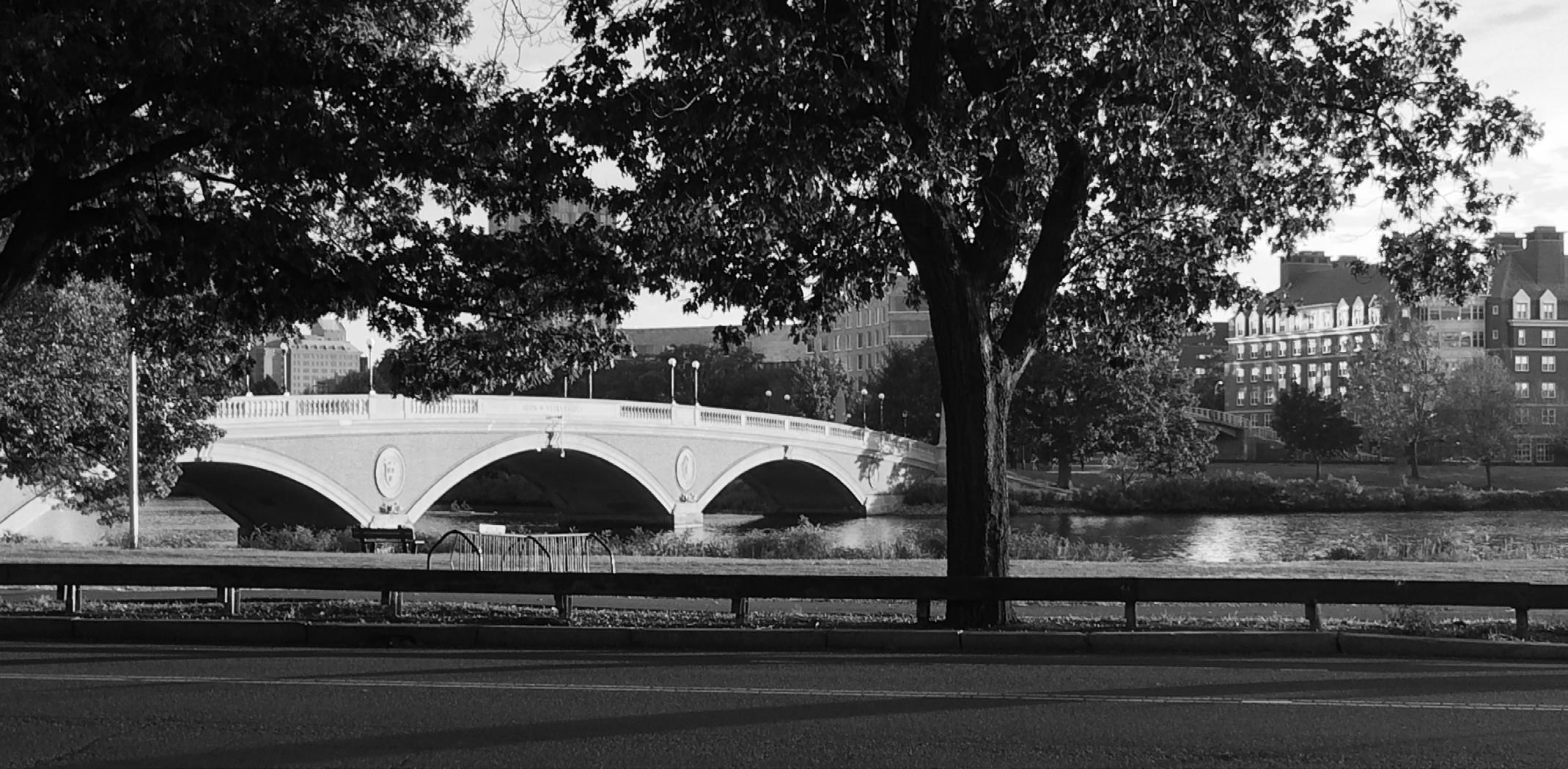PAGE 3
THE HARVARD CRIMSON | FEBRUARY 19, 2020
Kennedy, Markey Debate Issues By JASPER G. GOODMAN CRIMSON STAFF WRITER
In the first debate between incumbent United States Senator Edward J. Markey (D-Mass.) and U.S. Representative Joseph P. Kennedy III (D-Mass.), few major substantive differences emerged between the two candidates. Kennedy criticized Markey for past foreign policy votes and over campaign finance issues, but he declined to attack the incumbent harshly, and instead called him a “good senator” who has “made an important contribution to our commonwealth and our country.” In the debate, hosted by WGBH News, Markey stressed his experience and touted legislative accomplishments on policies involving gun control, climate change, and Alzheimer’s disease research. He has served in the U.S. Senate since 2013. “On the big issues of today — the challenges of today — I’ve not only been leading, but I’ve been delivering with legislation which passes, which protects the people of Massachusetts and the whole country,” Markey said. Markey also trumpeted his introduction of the Green New Deal — a resolution aimed at curbing carbon emissions — with freshman U.S. Representative Alexandria Ocasio-Cortez (D-N.Y.).
“The Green New Deal, since we introduced it — Alexandria Ocasio-Cortez and I — just one year ago, it’s transformed the debate on this issue,” Markey said. The two candidates sparred over campaign finance during the hour-long debate. Kennedy, a 2009 graduate of Harvard Law School, threw barbs at Markey for declining to comply with the People’s Pledge, which aims to limit outside money in politics, in this election. Markey signed onto the pledge back in 2013. Markey argued that candidates “should not silence” progressive groups. He has released an alternative to the People’s Pledge that barrs negative advertising funded by outside organizations but still allows for third-party spending. “How are you ever going to pass a Green New Deal if you allow the fossil fuel industry to open up the spigot and flood the airwaves with scare tactics?” Kennedy retorted. Kennedy also drew a distinction between himself and Markey on foreign policy issues. He criticized Markey for his 2002 vote in favor of the Iraq War and his 2013 “present” vote on a resolution to authorize military force in Syria. Markey said that the administration of former President George W. Bush “lied” about the presence of nuclear weapons in
BALLOT FROM PAGE 1
Iraq. “It was a false pretense to start a war,” Markey said. “I’m still angry about the lie to the American people. I regret that vote. It was a mistake.” Markey said that he voted “present” in committee on the 2013 Syria authorization due to a “rush to judgement” and a lack of information. To defend his foreign policy record, Markey touted endorsements from several peace groups, including Peace Action and the Council for a Livable World. The two candidates articulated similar views on many of the debate topics. They both posited their support for similar immigration reforms and Medicare-for-all. Both also chastised President Donald J. Trump for decisions he has made in office and called for Attorney General William P. Barr to be impeached. Barr has come under fire in recent weeks after he intervened to lessen the Department of Justice’s sentencing recommendation for Trump associate Roger J. Stone Jr. “This president violates his oath of office to protect every single citizen literally on a daily basis,” Kennedy said. Erin O’Brien, a political science professor at the University of Massachusetts Boston, said Kennedy “punted” on multiple opportunities to differentiate
himself from Markey. “My main takeaway from the night is that Kennedy got two opportunities to say why he was better and different than Ed Markey — both in the opening question and in the closing — and both times he punted,” O’Brien said. “I think that was purposeful because people like both Ed Markey and Joe Kennedy, so Joe Kennedy doesn’t want to activate anger.” “But ultimately, at least on the policy side, this is a race of what differentiates the two, and I don’t think Kennedy did that tonight,” she added. O’Brien said she thought the debate was a “draw,” but noted that Markey had a strong start to the evening when the discussion was focused on climate change. “He was able to dominate the first 15 minutes of discussion on an issue that he is recognized to be a real leader on,” she said. Speaking to reporters after the debate, Kennedy said he hopes to “leverage” the power of a Senate seat in a blue state better than Markey has over his time in office. “Senators from this state have traditionally been able to leverage that position to and the platform and the platform that comes with it,” Kennedy said. “I think we can get more out of this seat.” jasper.goodman@thecrimson.com
BARON FROM PAGE 1
Baron to Speak at Commencement transformative time for American journalism,” Bacow said. “His distinguished career bespeaks a deep commitment to the pursuit of truth and to the vital role of a free press in a democratic society. We look forward to welcoming him here on Commencement Day.” President of the Harvard Alumni Association Alice E. Hill ’81 called Baron a “bold and decisive leader.” “For decades, Marty Baron has pursued truth and tirelessly championed the role of journalism in enabling healthy democracy and fact-based discourse and debate on critical issues around the world,” Hill said. “A bold and decisive leader in his field, Marty’s distinguished career has been marked by determination, integrity, and a willingness to listen to the powerless and too-often voiceless. He will both inspire and engage our graduating students, Harvard alumni, and our entire community.” Baron will also receive an honorary degree from the University in May. Baron’s selection comes shortly after the University announced last week that Koma Gandy Fischbein ’95, a decorated United States Navy veteran, was elected chief mar-
shal for this year’s commencement ceremony. Gandy Fischbein will lead the alumni procession at the annual meeting of the Harvard Alumni Association and host a lunch in Widener Library on May 28, according to a University press release sent Thursday. Previous chief marshals have included former U.S. poet laurate Tracy K. Smith ’64 and former Secretary of Education Arne Duncan ’86. Gandy Fischbein earned several awards during her service in the Iraq War, including a Navy Commendation Medal and three Navy Achievement Medals. In addition to her military service, Gandy Fischbein was the first woman to coach the All Navy Men’s Rugby team. Gandy Fischbein said in the press release that she is honored to receive the position. “I am humbled to receive this honor from so many distinguished classmates,” Fischbein said. “I look forward to returning to Tercentenary Theatre for this momentous day to celebrate all of our journeys, especially those just beginning for the Class of 2020.” michelle.kurilla@thecrimson.com ruoqi.zhang@thecrimson.com
KHURANA FROM PAGE 1
Harvard Forward Khurana Discusses Faculty Dean Search On Overseers Ballot voters support our platform and want to see the Board address these issues,” Strasburger said. Harvard Forward’s slate of candidates include John E. Beatty ’11, Lisa Bi Huang, Margaret “Midge” Purce ’17, Dorothy “Thea” L. Sebastian ’08, and Jayson U. Toweh. Toweh said in the press release that their effort is about enhancing Harvard’s teaching and research on climate. “Our campaign is also about persuading Harvard to recognize areas of real concern among graduates across all generations and disciplines. It’s about expanding the climate conversation to include issues of economics, public health, and social justice in the university’s investment,” he said. Beatty said in the press release that the election allows alumni to tell faculty, students, and staff that they believe Harvard must do more to address climate change and make the University more equitable and inclusive. “We as alumni have a unique chance to ask this great univer-
sity, our university, to lead in showing what modern, inclusive, sustainable education can be,” Beatty said. University President Lawrence S. Bacow has previously spoken against divesting the school’s holdings in the fossil fuel industry, advocating instead for engagement with fossil fuel companies to combat the effects of climate change. The University has enacted a Climate Action Plan to become fossil fuel neutral by 2026 and fossil fuel free by 2050. “While I, like my predecessors, believe that engaging with industry to confront the challenge of climate change is ultimately a sounder and more effective approach for our university, I respect the views of those who think otherwise,” Bacow wrote in a Harvard Magazine article last year. “We may differ on means. But I believe we seek the same ends — a decarbonized future in which life on Earth can flourish for ages to come.” michelle.kurilla@thecrimson.com ruoqi.zhang@thecrimson.com
August — in their roles. Gearan currently serves as the director the Institute of Politics. Despite those calls, College administrators have repeatedly noted that Gearan and Herlihy-Gearan, who are not tenured, were only appointed for a single year. Gearan and Herlihy-Gearan’s success in the interim role has caused some students to question whether status as a tenured faculty member in the Faculty of Arts and Sciences should be a prerequisite for serving as a permanent faculty dean. Khurana cited several reasons why the College prefers to appoint tenured faculty members to the position. He specifically mentioned their “unique perspective” in teaching undergraduates and understanding their classroom commitments and academic pressures, as well as their ability to recruit other faculty into the house and bring them in as speakers. “We think that helps improve and strengthen the kind of integrated vision that we have for both intellectual, so-
cial, and personal aspects coming together in the house system,” he said. Khurana further noted that tenured status allows deans to speak freely in their roles with
We think that helps improve and strengthen the kind of integrated vision that we have. Rakesh Khurana Dean of the College
greater ease. “Faculty are able to often — and I can say this for myself as a tenured faculty member — say things without actually fear of or concerns around career prospects,” he said. “And I think that works to the benefit of the students.” “This is not to say that others don’t have important things to bring, but it is part of the philosophy that led to the creation of the House system, and it’s part of the philosophy that has guided the House system. And I
want to honor that philosophy,” he added. The five searches also come roughly a year after a campus controversy over former Winthrop faculty dean Ronald S. Sullivan, Jr.’s decision to defend Hollywood producer Harvey Weinstein against sexual abuse charges. The College eventually dismissed Sullivan, and he left Weinstein’s team, but many of the questions about the role he formerly filled remained. Aside from calling on Khurana to remove Sullivan, many student protesters demanded the College clarify what faculty deans owe to their house residents. Khurana said the College has attempted to “demystify” the process of selecting faculty deans this year by clearly defining the role and sustaining high levels of “community engagement,” both by soliciting nominations and gathering student input on candidates. He added that the College is “fortunate” to boast faculty who are passionate about contributing to and improving undergraduate residential life, as evidenced by “large numbers” of prospective candidates this
year. “I think that because we’ve made it more transparent about how you become faculty deans, you’d be surprised at how many people are really interested in that and just didn’t understand what was the way to even learn more,” Khurana said. “I’m really grateful for all the outgoing faculty deans,” he added. “They’ve done a remarkable job because I think part of what’s also attractive to folks is to see the kind of communities that they’ve created.” After finalizing its shortlists of candidates, the College will form search committees, host meetings where students and tutors can share input regarding possible candidates, and consult University administrators before making a final selection in each of the five houses. Khurana said he hopes the College can harness these upcoming transitions as opportunities for Harvard to evaluate the futures of its upperclassmen houses and recommit to the values of its house system. juliet.isselbacher@thecrimson.com amanda.su@thecrimson.com
Like The Crimson on Facebook. Facebook.com/TheHarvardCrimson
Transformative coverage.
The Crimson thecrimson.com




